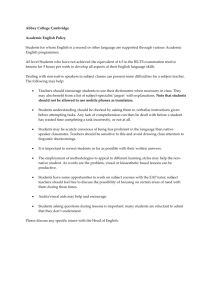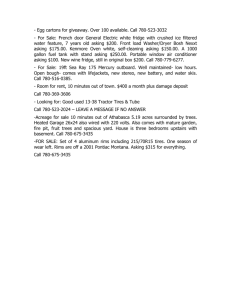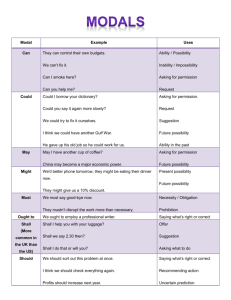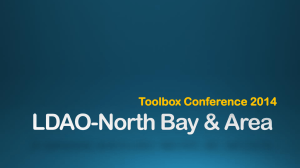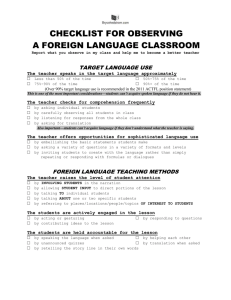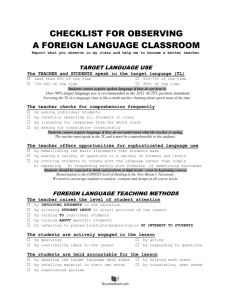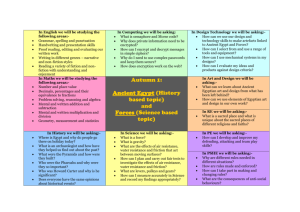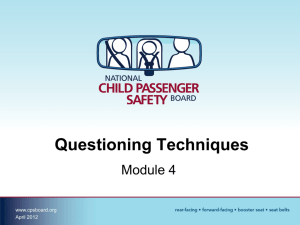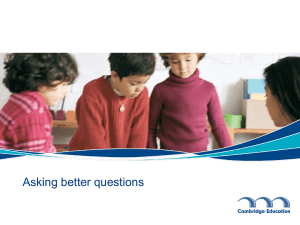Assessment
advertisement
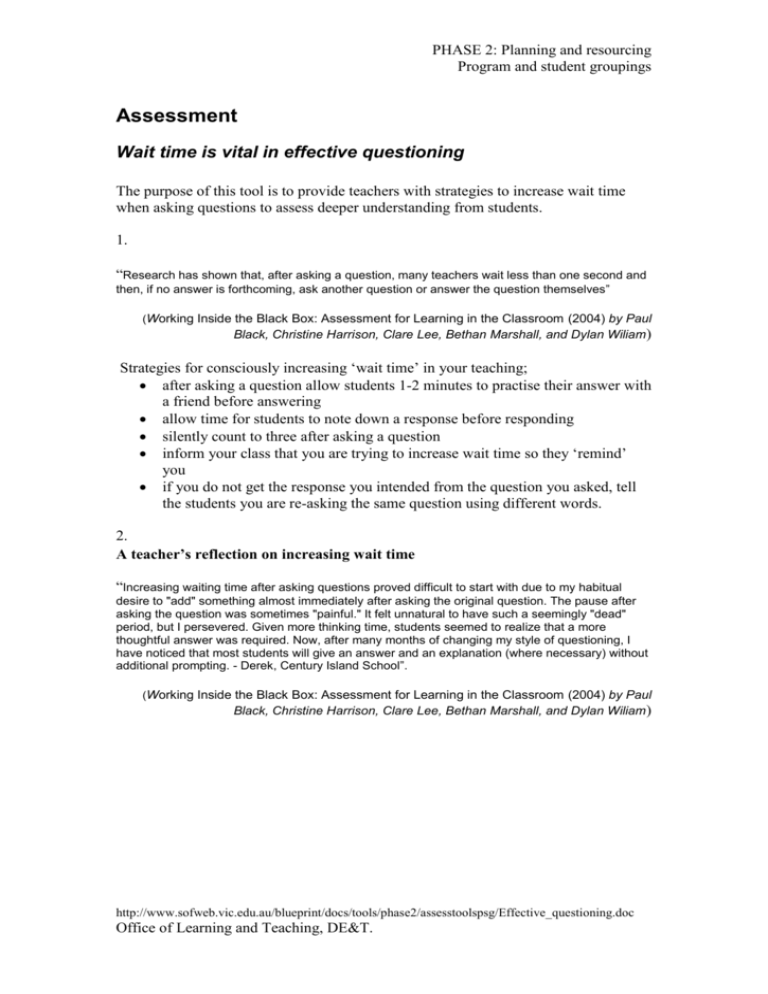
PHASE 2: Planning and resourcing Program and student groupings Assessment Wait time is vital in effective questioning The purpose of this tool is to provide teachers with strategies to increase wait time when asking questions to assess deeper understanding from students. 1. “Research has shown that, after asking a question, many teachers wait less than one second and then, if no answer is forthcoming, ask another question or answer the question themselves” (Working Inside the Black Box: Assessment for Learning in the Classroom (2004) by Paul Black, Christine Harrison, Clare Lee, Bethan Marshall, and Dylan Wiliam) Strategies for consciously increasing ‘wait time’ in your teaching; after asking a question allow students 1-2 minutes to practise their answer with a friend before answering allow time for students to note down a response before responding silently count to three after asking a question inform your class that you are trying to increase wait time so they ‘remind’ you if you do not get the response you intended from the question you asked, tell the students you are re-asking the same question using different words. 2. A teacher’s reflection on increasing wait time “Increasing waiting time after asking questions proved difficult to start with due to my habitual desire to "add" something almost immediately after asking the original question. The pause after asking the question was sometimes "painful." It felt unnatural to have such a seemingly "dead" period, but I persevered. Given more thinking time, students seemed to realize that a more thoughtful answer was required. Now, after many months of changing my style of questioning, I have noticed that most students will give an answer and an explanation (where necessary) without additional prompting. - Derek, Century Island School”. (Working Inside the Black Box: Assessment for Learning in the Classroom (2004) by Paul Black, Christine Harrison, Clare Lee, Bethan Marshall, and Dylan Wiliam ) http://www.sofweb.vic.edu.au/blueprint/docs/tools/phase2/assesstoolspsg/Effective_questioning.doc Office of Learning and Teaching, DE&T.

